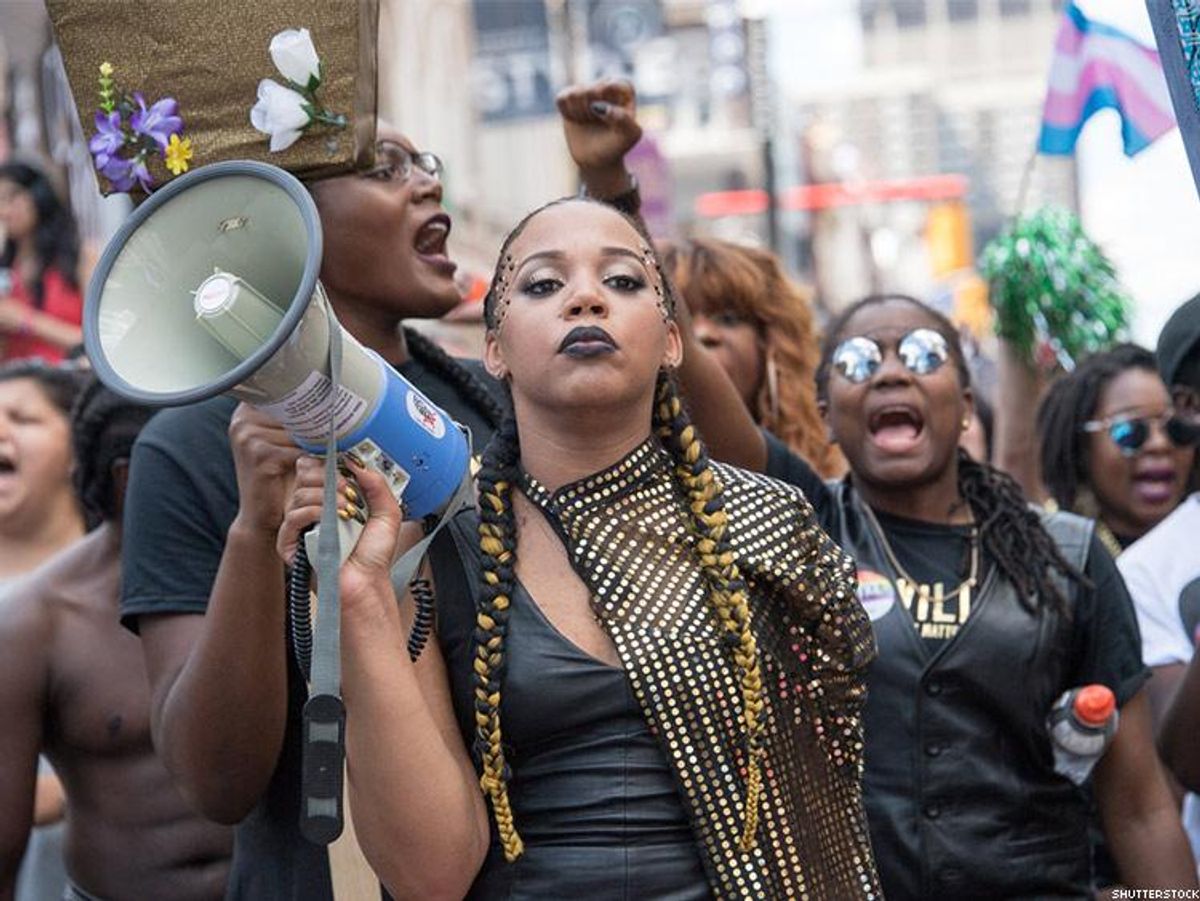Voices
The LGBTQ March Will Be Intersectional or It Will Be Bullshit

Writer Garrett Schlichte has some requirements for the big protest.
February 02 2017 5:46 AM EST
February 02 2017 6:12 AM EST
By continuing to use our site, you agree to our Private Policy and Terms of Use.

Writer Garrett Schlichte has some requirements for the big protest.
"My feminism will be intersectional, or it will be bullshit." Those words were first written by Flavia Dzodan on October 10, 2011. They were paraphrased by me in the title of an essay, and it wasn't until the end of that piece that I credited Dzodan. This time around, I will not make the same mistake. I will not make that mistake because that those words were meant to be the central criticism of that piece. It has been proven time and again, and there it was staring me directly in the face: If you are a member of a majority group, i.e., white, male, cisgender etc., you will likely not recognize your own biases, frequently because you will be blinded by your own good intentions.
On the heels of an exceptionally powerful Women's March on Washington (that was not without its criticisms), which itself turned into a global day of action, a march for LGBTQ equality is being planned to coincide with Washington D.C.'s Capital Pride festivities. Here again is where I feel the need to say queer love must be intersectional, or it will be bullshit. The observation I made in my essay, that the large majority of people represented at Pride parades across the country tend to be white, fit, cisgender gay men, holds just as true today as it did then. A quick Google search for "don't fit in at pride parades" will produce myriad essays, think pieces, and Reddit threads about members of the LGBTQ community who feel disenfranchised and erased by the narrative painted during Pride parades.
To feel the need to say this in 2017 almost feels as if I am shouting into the void. Regardless, it is worth shouting: Pride cannot exist without trans women and men, Pride cannot exist without fats, Pride cannot exist without femmes, Pride cannot exist without lesbians, Pride cannot exist without bisexual people, Pride cannot exist without queer people of color, Pride cannot exist without queer people who are differently abled, Pride cannot exist without fairies and bears and gender-nonconforming folks, it cannot exist without creating space for people who come out later in life or are not yet ready to come out. In order to exist, Pride does not need to create a space for all of those people; it needs to be a space for all of those people from its foundation.
Participating in the Women's March was powerful because I understood from the beginning that it wasn't about me. And I believe therein lies the problem with Pride. It feels as if it exists for me, and certainly there can be an argument made for that. However, I feel it is more powerful, albeit more difficult, to understand that it is actually there for the collective me. I am not, for example, a black lesbian. I will never understand the unique struggles of a black lesbian, and I will never claim to know that experience or equate it with my own. However, it is my responsibility as a queer person to make that person's struggle of equal importance to my own.
For many, marriage equality appeared to be the final frontier. I believe I used to be one of those people. However, I cannot sit by happily married one day if I know that there are LGBTQ youth homeless on the street. I cannot sit happily married one day if there are still black and brown bodies being unjustly persecuted by the police. I cannot sit happily married one day if my queer sisters, both cisgender and trans, are not being paid or valued for equal work. And so we cannot have a march for LGBTQ equality or a Pride parade that does not bring those issues to the front.
I love Ellen and Anderson and Andy and Rachel and Tyler and Neil. But I hope none of them headline the LGBTQ March on Washington. The wonderful thing about that list is that you can fill in the last name of at least half of them without any intimations. They are household names; they are staples of American popular culture. Now try to name six nonwhite, noncisgender queer folks in media as easily. Outside of Laverne or Ru, I don't know if it is an equally easy task. This is why those are the voices that need to be raised, because those are the people, often nameless and always brave, who gave our movement a voice.